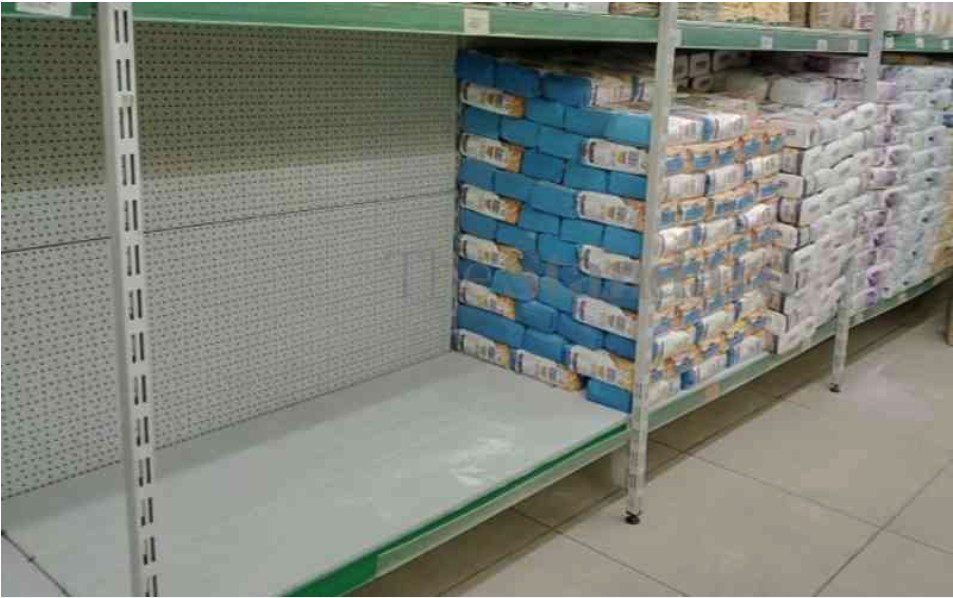Are Grain Bans Hurting Botswana?
Botswana’s grain import bans are pitched as food security measures but critics warn they risk higher prices, smuggling, and weakened regional integration under SADC and AfCFTA
DOUGLAS RASBASH
Few things stir stronger emotions than food. In Botswana, the latest restrictions on grain imports have been presented as prudent measures to safeguard supply and build reserves through the Botswana Agricultural Marketing Board (BAMB). Yet the paradox is clear: as a net importer of grain, the country risks shortages and higher prices by disrupting the very lifeline it depends on.
THE SHORT-TERM ALLURE OF BANS
Governments often reach for trade bans in times of crisis because they look decisive. By blocking exports or imports, leaders claim to be “keeping food for the people.” For producers, bans can reduce competition and assure local offtake. The optics are powerful: sovereignty in action, nationalism as protection.
But optics are not outcomes. For a net importer like Botswana, restrictions reduce supply in already strained markets. Unlike Zambia or Tanzania, which can sometimes export in good years, Botswana cannot grow enough maize to meet demand. Limiting imports means higher prices, fewer options, and lower quality for consumers.
LESSONS FROM AFRICA’S BANS
Across the continent, bans have consistently failed to deliver food security.
Malawi’s long history of maize export bans showed little benefit. Research by IFPRI found that such controls distorted markets and drove smuggling across borders. Farmers held back investment, fearing government would close access to better-paying markets.
In Zambia, export restrictions proved “counterproductive,” according to the World Bank. They undermined rural incomes and deterred investment, as farmers could not plan for future markets.
Tanzania’s bans temporarily lowered urban consumer prices but ultimately hurt producers, reducing maize output and fuelling smuggling into Kenya. Nigeria’s border closure in 2019 pushed rice prices up 40% within weeks and encouraged widespread smuggling.
The verdict is consistent: grain bans soothe politics in the short term but damage economies, farmers, and consumers in the long run.
REGIONAL CONTRADICTIONS
Botswana is a member of SADC and the African Continental Free Trade Area (AfCFTA), both of which commit to reducing barriers and enabling free movement of goods. Yet national emergencies are often used to suspend these commitments.
While the European Union banned unilateral export restrictions even during the Ukraine war, African states continue to rely on bans that undermine trust in regional integration. Each national restriction may look justified at home but collectively weakens credibility across the continent.
PRINCIPLES IN CONFLICT
Ironically, Botswana has shown openness in other sectors. Nigerian businessman Faruk Gumel was recently appointed chair of the new Sovereign Wealth Fund Board, reflecting acceptance of cross-border labour flows. If labour mobility is embraced, why not grain flows? The inconsistency between openness for talent and protectionism for food reflects confusion rather than pragmatism.
CONSUMERS BEAR THE COST
Maize meal is Botswana’s staple. Demand is inelastic — people cannot switch away when prices rise. Restricting grain imports is effectively a tax on the poorest households. Across Africa, protests over bread and maize shortages have shown how quickly food inflation turns into political risk.
POLICY REVERSALS AND TRUST
Botswana’s shifting policies highlight the problem. Bans were imposed in 2022, lifted in 2024, and partially reinstated in 2025. Such reversals damage trust among consumers, traders, and regional partners. Investors in logistics and milling hesitate to commit when policy signals are unpredictable.
THE SMUGGLING RISK
Every ban creates a shadow market. In Malawi, grain moved secretly into Mozambique; in Tanzania, into Kenya; in Nigeria, rice flowed from Benin. Botswana risks the same. Smuggling inflates prices, drains government revenue, and removes quality controls — leaving citizens less secure.
SMARTER ALTERNATIVES
Better options exist. Strategic grain reserves, regional pooling, and targeted consumer support can provide buffers without undermining trade. Output-based incentives also offer a cheaper path.
Instead of costly input subsidies on fertiliser or irrigation, government could reward farmers directly for selling grain locally. A 5% premium on farm-gate prices would cost significantly less than input subsidies while ensuring supply for BAMB reserves. Paying for results rather than inputs would protect consumers, reassure farmers, and preserve Botswana’s commitments to SADC and AfCFTA.
AFRICA’S BIGGER QUESTION
The grain ban debate mirrors Africa’s broader struggle: should sovereignty trump integration, or should interdependence be recognised as resilience? Each ban chips away at the AfCFTA dream. Each act of openness builds it. Botswana’s choice will echo beyond its borders.
CHOOSING PRINCIPLES OVER REFLEXES
The protectionist reflex is easy but short-sighted. Restricting grain imports is like cutting the rope you are climbing. Botswana’s challenge is to align its actions with its commitments. If the nation believes in regionalism for labour and finance, it must extend the same logic to food.
Grain bans are not food security. They are insecurity disguised as sovereignty.

